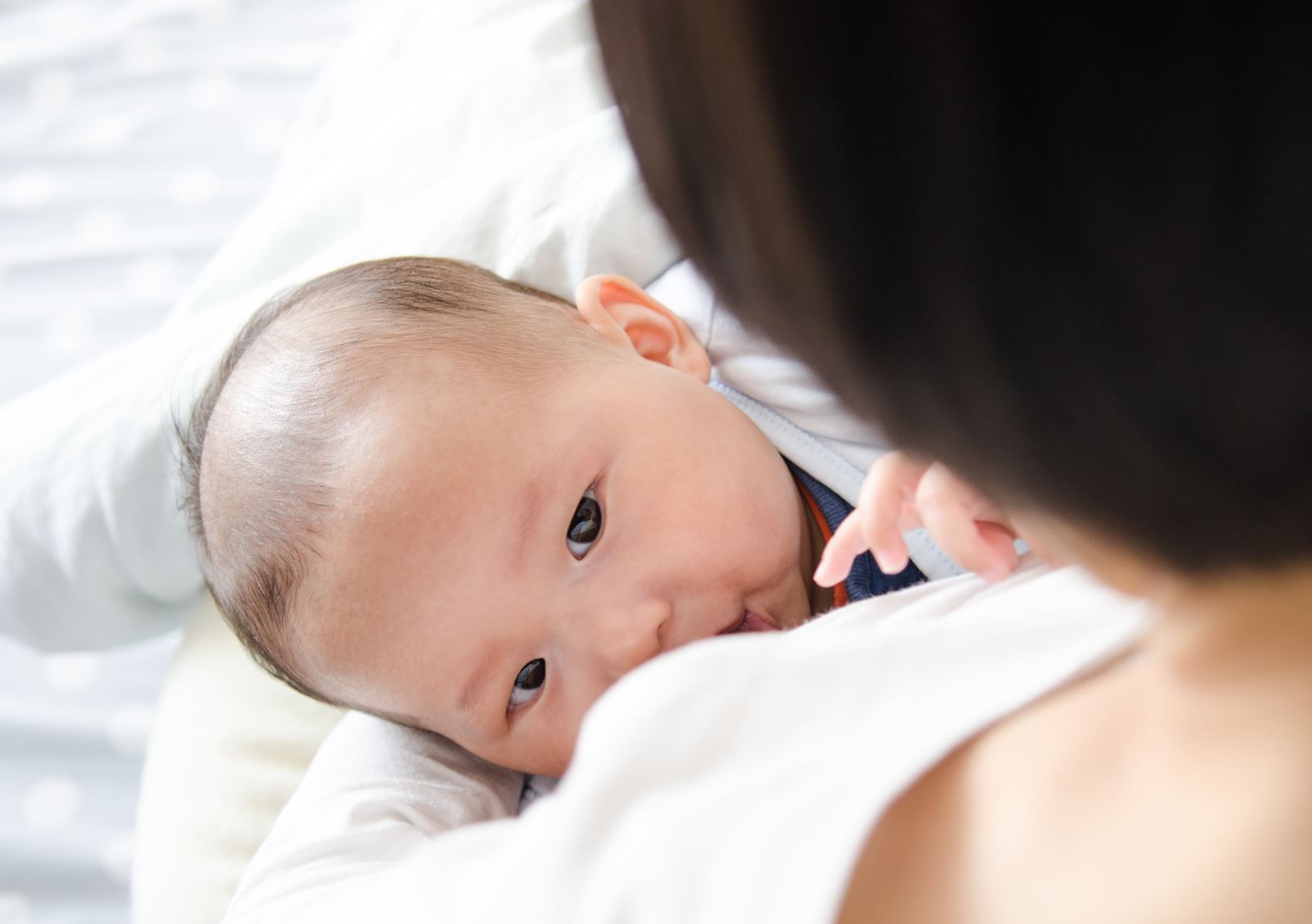
Tips on infant sleep safety: Including co-sleeping, bumpers, blankets, overdressing and when you should consider sleep training.
Interrupted sleep affects both you and your baby. Dr. Tiffany Kimbrough, pediatrician, mom and medical director of the Mother-Infant Unit, offers some tips to promote the safest and smoothest sleep possible – for the whole family.
Sleep safety ABCs
 To help you understand how and where your baby should sleep, follow these ABCs:
To help you understand how and where your baby should sleep, follow these ABCs:
- A stands for alone. Babies should always sleep in their own space. They should not sleep with an adult or another caregiver. Your baby could fall out of bed or even suffocate if you accidentally roll on top of them or their face becomes covered with soft bedding while you sleep.
- B stands for back, meaning babies should be placed on their backs to sleep for every sleep opportunity. Once they get bigger and are able to roll over onto their stomachs, you don’t have to flip them onto their backs in the middle of the night if they roll. At least start older babies out on their backs for the night.
- C stands for crib. Avoid putting your baby in a swing or car seat for sleeping. Babies should be in a Consumer Product Safety Commission certified safe sleep space like a bassinet or crib every time they sleep. Support your baby with a firm mattress and no extra pillows, blankets or soft bedding.
Expect frequent feedings
“It’s important for babies to feed frequently, especially in the beginning, so they can help maintain mom’s milk supply,” said Dr. Kimbrough. “It’s not uncommon for breastfeeding babies to wake up more often at night during those early weeks to help establish feeding.”
Move your baby to the crib after feeding. If you accidentally fall asleep while feeding, have your partner take the baby to the crib.
“Parenting is a team sport, so use your partner,” Dr. Kimbrough added.
Bedtime habits start early
While your baby shouldn’t sleep in your bed, keeping the crib in your room for the first six months can help reduce risk for Sudden Unexpected Infant Death and increase breastfeeding ease. Low light and low stimulation set the stage for good sleep habits.
Newborns are only awake 45-60 minutes at a time, and they enjoy six to seven sleep cycles a day. They may cue you that they’re ready to snooze by yawning or fidgeting. Older babies may rub their eyes or the outside of their ear.
“Jump on those early sleepy cues before you miss the boat and get into over-tired territory,” urged Dr. Kimbrough.
By 6 months of age you will notice your infant has three regular naptimes during the day and by 9-12 months most babies are down to two daytime naps.
Establish a healthy bedtime routine early. Dim the lights and quiet the space as much as you can. You can add a little structure to your baby’s day by weeks 4-6 — any earlier than that and your baby may not be ready to incorporate day/night cycles just yet. This may be a bedtime bath, book and song. At this point, they’ll begin to understand nighttime cues. Around 3-4 months, they may be able to get to sleep on their own with the cues in place.
Take care of your mental health
Every baby's sleep routine is different. Your baby may not sleep through the night for months, even if your friend’s baby did so sooner. Half of all babies still wake up once a night around 6 months of age. Try to avoid the comparison trap and feeling like you’re doing something wrong if your baby isn’t sleeping the same as another. Lastly, try to rest. Sleep deprivation during the first few months is real and this can impact you significantly.
“Postpartum depression is incredibly common in women, but we’re learning it’s also common in men,” Dr. Kimbrough added. “The more you take care of your overall physical being, the more that helps your mental health. I encourage families to try to sleep when they can. We all know that adage of ‘sleep when the baby sleeps,’ but your baby may have their nights and days mixed up for a few weeks and it’s important to nap during the day when you’re able.”
Your pediatrician can help troubleshoot if you face too many sleepless nights with your bundle of joy and help find the solution that is right for your family.
